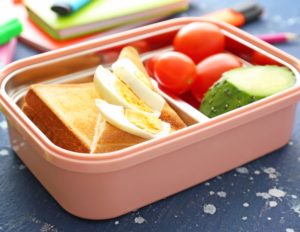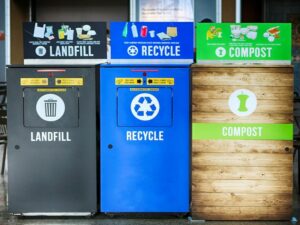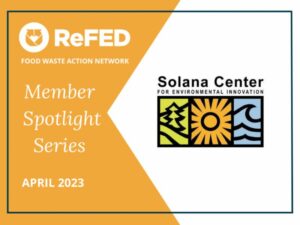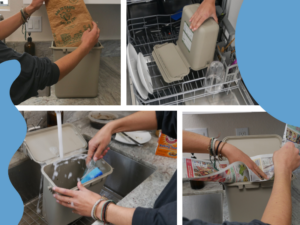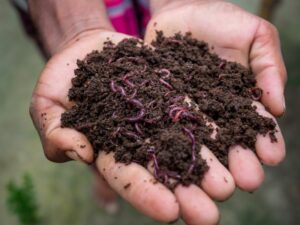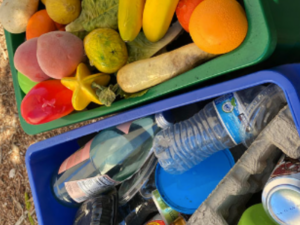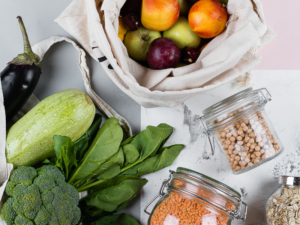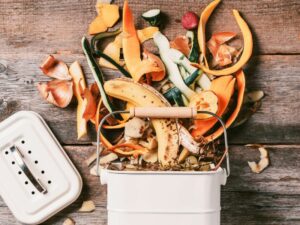Posts Tagged ‘Zero waste’
Back to School: How Can My Child’s Lunch Be Made Low or Zero Waste?
Yes, it absolutely can! By making school lunches more eco-friendly, and by encouraging your kid to recycle and compost, you can significantly reduce your household’s waste. Some helpful guidelines are… An added bonus of paying attention to these guidelines is that you can determine what materials your child’s lunch containers are made of. For example,…
Read MoreThe Benefits of Diverting Organic Waste from Landfills
Written by volunteer: Kate Sheppard Diverting waste from landfill can sometimes feel like a chore, but the benefits far outweigh the temporary annoyance of getting your hands dirty. This is especially true of organic waste. Yes, it may occasionally be sticky or smelly, but it’s not hard to properly sort and divert these compostable materials…
Read MorePicnic in sustainable style!
The weather is warm and the sun is shining, making it a lovely time to picnic. It’s easy to wrap your picnic food in plastic wrap, put it all in a bag and throw all your trash away at the nearest trashcan. However, the earth, the water, the landfill, and your garden will all thank…
Read MoreReFED Food Waste Action Network Member Spotlight
Solana Center is excited to be featured as a Member of ReFED’s Food Waste Action Network (FWAN). The following interview was originally published on their website in April 2023 here. Organization Overview: Solana Center for Environmental Innovation helps individuals, businesses, and municipalities implement practical solutions for food waste diversion, surplus edible food donation, and environmental sustainability improvements.…
Read MoreLet’s Talk About Organics Recycling
Solana Center is proud to work with a majority of jurisdictions in the San Diego region to help with organics green bin distribution and provide education on what goes where as both residents and businesses begin participating in this important program spurred by SB 1383 legislation. At the start of summer 2021, EDCO distributed kitchen…
Read MoreCompost: It’s Alive!
The physical and chemical conditions in a compost heap seem logical if you think about what compost really is: an enormous pile of food for billions of minute organisms. These microorganisms have certain chemical requirements, including carbon for energy, nitrogen to build proteins, and oxygen for respiration. The most numerous organisms in a compost pile…
Read MoreEPS Food Container Alternative List
EPS is “expanded polystyrene,” commonly known by the brand name Styrofoam™. There are environmental concerns with EPS, including difficulty in recycling, source of man-made marine debris, and greenhouse gas emissions from the embedded energy of the manufacturing process. Additionally, EPS food containers are not fully recyclable in a single-stream process because they break up in…
Read MoreSecondhand compost bins take recycling to the next level
At Solana Center, we live the values of reduce, reuse, and recycle in all forms. This spurred the idea to offer our pre-loved bins to the community at reduced prices at our store. This is a solution to both provide residents with an opportunity to give their compost bins another life if they aren’t being…
Read MoreWorried About Your Carbon Footprint? Shopping Local Might Be the Key
Blog Post by Volunteer and Student, Anna Potratz The pollution that comes from simply shipping food across the country can do massive environmental damage. Delivery trucks can put up to 1,522 tons of carbon emissions into the atmosphere every year, and about 70% of our food is shipped by truck, according to the US Energy…
Read MoreTales of a Beginning Composter
By Master Composter Graduate, Wendy Ullrich It’s fair to say that until recently I knew nothing about composting. In fact, what little I knew, was all wrong. If someone even mentioned composting, my nose would wrinkle and I would imagine all sorts of slimy and disgusting things that you might find clogged in a drain. YUCK!…
Read More
